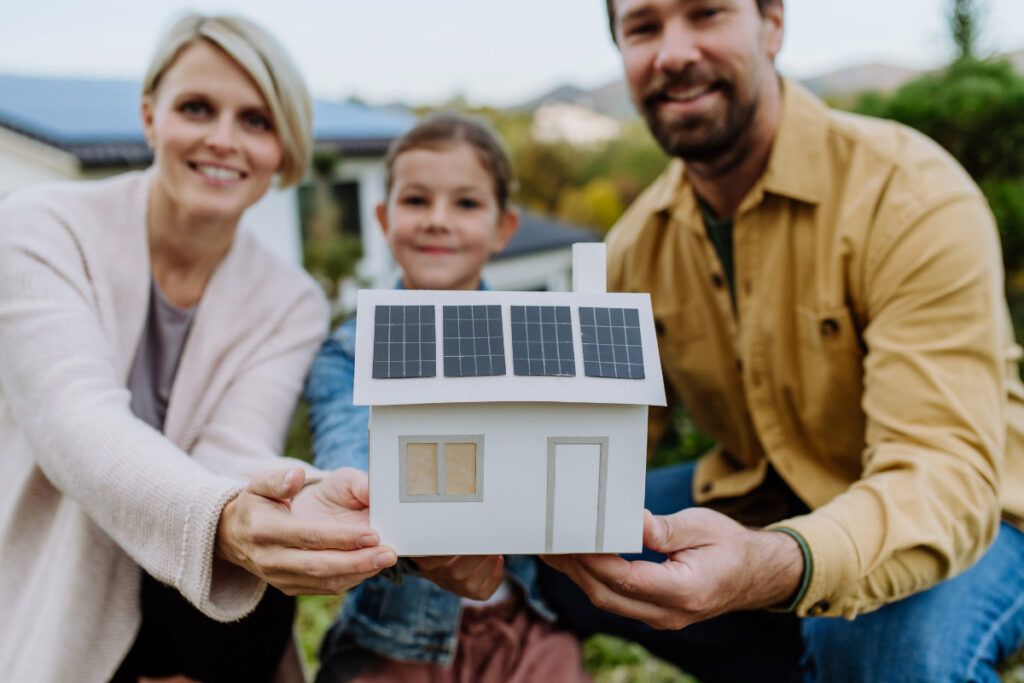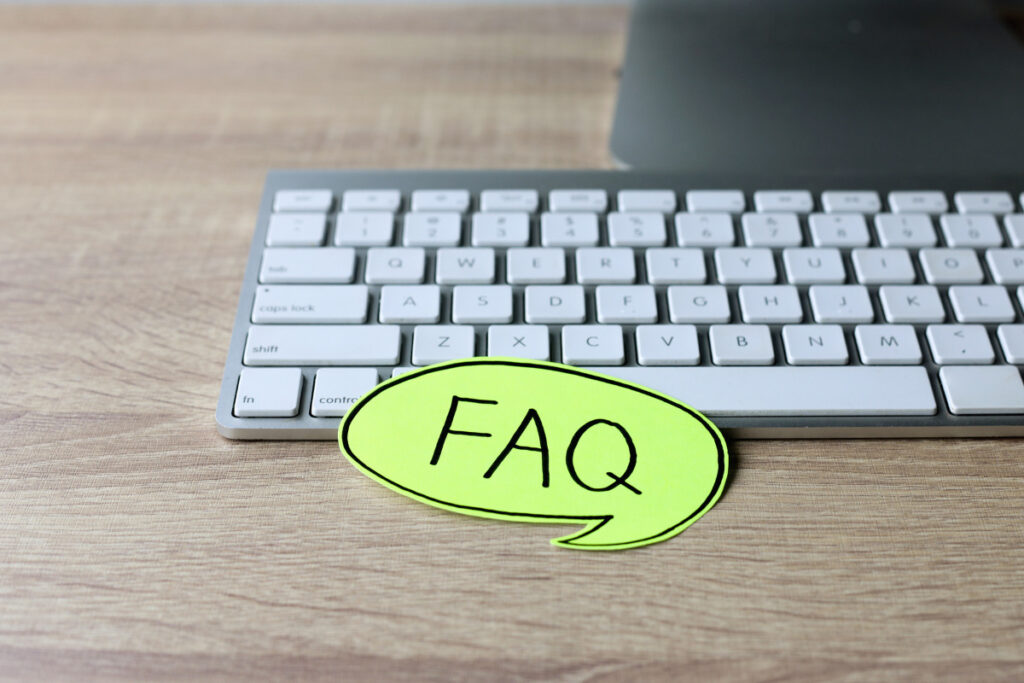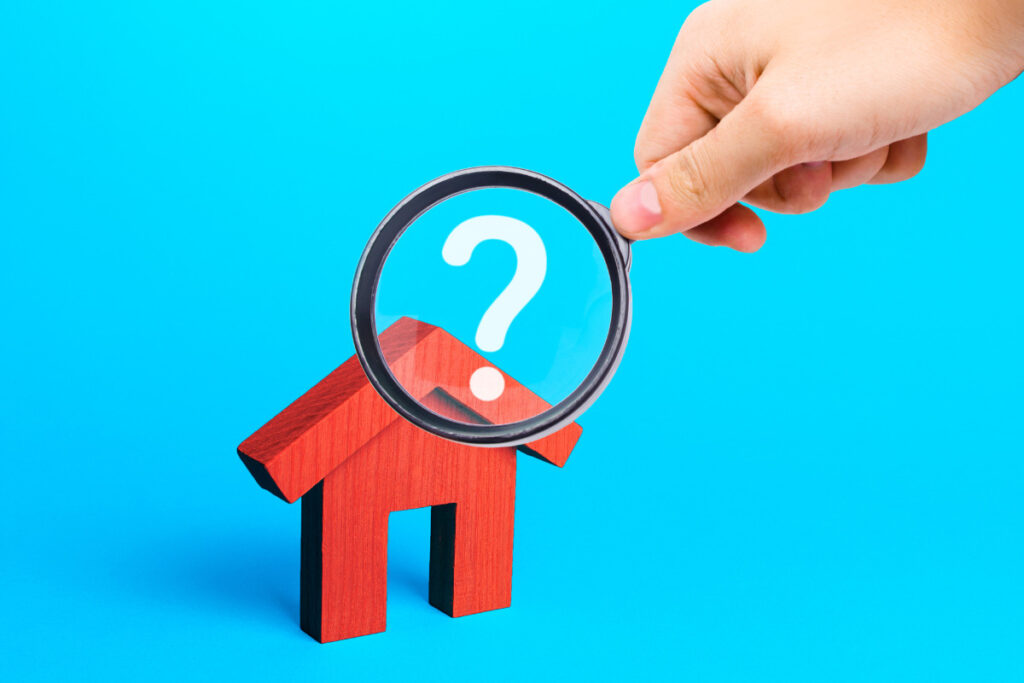Introduction
As the demand for sustainable living continues to grow, so does the popularity of solar energy in residential properties. However, when it comes to selling a home equipped with solar panels, realtors and potential buyers may experience hesitation.
This blog post will explain why solar panels cause concerns for real estate professionals and homebuyers. This uncertainty often stems from misconceptions about financing options, maintenance responsibilities, and the overall impact on property value. We’ll highlight key factors contributing to these concerns and provide insights on navigating them in today’s green-conscious market.
| Key Takeaways |
|---|
| Many buyers and realtors are hesitant to invest in homes with solar panels due to financial concerns about financing, leasing, installation, maintenance, appraisal, and inspection. |
| Realtors should educate their clients on the long-term cost benefits of owning a solar-powered home and highlight the increased property value associated with owned solar panels. |
| Effective marketing strategies include leveraging social media platforms and virtual tours and offering incentives such as tax credits or free maintenance services for potential buyers. Collaborating with green organizations that can help promote your property's eco-friendly features is also essential. |
The Obstacles To Selling A Solar Home
Selling a solar home can be challenging because buyers may not fully understand the long-term value of a solar energy system and may have concerns about financing, leasing, installation, maintenance, appraisal, and inspection.
Perception Of Long-Term Value
One major obstacle in selling a solar home is the perception of its long-term value. It’s essential to understand that installing solar panels on a home is seen as an investment by many homeowners, with the expectation that it will eventually pay off through energy savings and reduced utility bills.
Real estate agents must emphasize the potential return on investment (ROI) from having a solar-powered home to combat this issue. For instance, they can highlight specific cost savings associated with renewable energy solutions—such as lower electric bills—to demonstrate how these financial benefits can offset any initial expense of purchasing a property with installed solar panels.
Financing And Leasing Concerns
One significant obstacle in selling a solar home is navigating the intricacies of financing and leasing concerns. With most homeowners unable to afford solar panel systems outright, many opt for affordable solar options such as leases or power purchase agreements (PPAs).
For instance, in the case of leased panels or PPAs, transferring responsibility from the seller to the buyer may prove complicated. The new homeowner must be willing and qualified to assume the current lease agreement or set up a new contract with the solar provider.
If improperly executed, this transfer could lead to unexpected costs and liabilities that may deter potential buyers.
Moreover, it’s essential to consider how residential solar panels are treated during home appraisals – leased panels typically don’t impact a property’s value since they’re not considered owned assets by Lawrence Berkeley National Laboratory research.
In contrast, owned or financed panels can often elevate property values because of their long-term energy-saving benefits.

Installation And Maintenance Issues
Installation and maintenance issues can be a significant obstacle to selling a solar home, as potential buyers often have concerns about the longevity and upkeep of solar panel systems.
An important factor affecting their decision-making process is the quality of the installation itself. If the panels were not installed by a reputable company or if there are visible signs of wear and tear, this could deter buyers who may worry about future repair costs.
Realtors can provide evidence of proper installation from certified professionals to alleviate these concerns and share details about any warranties covering the panels.
Educating clients on routine maintenance requirements, such as cleaning debris off the panels or monitoring energy production, can also help mitigate apprehensions surrounding property maintenance.
Appraisal And Inspection Difficulties
Appraising and inspecting homes with solar panels can be a challenge for realtors. Appraisers may not be well-versed in valuing the benefits of solar energy, leading to an undervaluation of the home.
This could result in the property being marketed for a lesser price than what it’s worth.
Despite these difficulties, research shows that homes with solar panels sell for more on average compared to those without them. Real estate agents must understand this and communicate it effectively to prospective buyers.
Buyer Education And Awareness
Educating buyers is crucial when selling a home with solar panels. Realtors are essential in ensuring potential buyers understand the benefits and limitations of owning a solar-powered home.
They need to be able to provide information about how the system works, its impact on energy savings, and any contractual obligations associated with leasing or financing. Buyers also need reassurance that the solar panel installation was completed safely and upholds industry standards.

Shedding Light On Solar: How Panels Affect Transactions
Solar panels can significantly impact home transactions, from affecting the property’s appraised value to influencing buyers’ financing and leasing options.
The Impact On Home Value
Solar panels significantly impact home value, and in most cases, they can increase the appraised value of a property. Research shows that homes with solar energy systems sell for more than others without.
Solar panels can boost a home’s resale value, while leased ones cannot be appraised. The Office of Energy Efficiency and Renewable Energy states that installing solar energy systems is likely to increase your home’s worth by anywhere from $15,000 to $45,000 depending on the location and size of the installation.
The Role Of Appraisals And Inspections
Appraisals and inspections play a vital role in selling homes with solar panels. A professional appraiser will assess the value of the installed solar panel system and add that to the total home appraisal value.
In most cases, properties with solar panels tend to have a higher estimate than those without.
Inspections are crucial for identifying any installation or maintenance issues associated with solar panels. Any defects could lead to additional costs for repairs or replacement, potentially deterring buyers from purchasing a solar-powered home.
Financing And Leasing Options
Financing and leasing options are essential when selling a solar home.
Additionally, if the panels are leased, the owner must transfer them to the new buyer.
That said, owned solar panels can offer potential buyers energy savings and other benefits that make them an attractive feature for any home. In fact, some states even provide clean energy incentives for homeowners who install solar panel systems.
Homeowners selling their homes with solar panels must educate themselves on financing and leasing options and how these will impact their sale process.
Selling A House With Solar Panels: Owned Vs Leased
Owned solar panels offer advantages in terms of higher property value, lower overall cost, and more effortless transfer of ownership; on the other hand, leased solar panels come with challenges, such as difficulty in financing and leasing them.
Advantages Of Owned Solar Panels
Homes with owned solar panels offer several advantages, including:
- Increased Property Value: Homes with owned solar panels sell for an average of 17% more than those without, according to a National Renewable Energy Laboratory study.
- Energy Savings: Solar panels generate energy that can power a home, reducing electricity bills and saving homeowners thousands of dollars annually.
- Control Over System: With owned solar panels, homeowners can control the system and make adjustments or upgrades as needed without relying on a third-party leasing company.
- Tax Benefits: Homeowners who own their solar panel systems are eligible for federal tax credits and rebates, which can offset the cost of installation and provide long-term financial benefits.
- Positive Environmental Impact: Using renewable energy sources like solar power reduces reliance on non-renewable energy sources like coal or natural gas, which helps reduce greenhouse gas emissions and combat climate change.
Overall, owning solar panels is a smart investment offering immediate and long-term benefits for homeowners.
Challenges Of Leased Solar Panels
Leased solar panels can pose significant obstacles for homeowners looking to sell their solar-powered homes. Here are some challenges associated with leased solar panels:
- Limited control over the installation process and maintenance of panels
- Difficulty in transferring lease agreements to potential buyers
- The buyer’s credit may not be sufficient for lease transfer or contract qualification
- Potentially higher monthly payments for the buyer than if they owned the panels themselves
- Lower resale value due to a limited warranty period on leased panels compared to owned panels.
Before selling a home with leased solar panels, it’s crucial to comprehend the lease agreement’s terms, conditions, and obligations. It is also recommended to seek advice from experts in real estate, financial planning, and legal documentation, if necessary.
Tips For Marketing A Home With Solar Panels
Marketing a home with solar panels requires more effort and creativity than a traditional home listing. Here are some tips to help sell your solar home:
- Highlight the Energy Savings: Emphasize the energy savings and cost benefits of owning a solar home to potential buyers. Share specific data on the reduced utility bills of owning a solar panel system.
- Leverage Marketing and Advertising: Utilize social media platforms, virtual tours, aerial photography, and other innovative marketing techniques to showcase the home’s unique features.
- Educate Buyers and Agents: Provide educational resources demonstrating the value of owning a solar home. Train agents to communicate effectively about solar energy, its environmental benefits, and the financial incentives available to homeowners.
- Keep Maintenance Records: Maintain detailed records of all maintenance work performed on the solar panel systems to prove their longevity, durability, and reliability.
- Offer Financing Options: Provide financing options for buyers interested in purchasing the property with an existing or new solar panel system installed.
- Use Incentives: Consider offering incentives such as tax credits or free maintenance services to sweeten deals for those interested in buying your house with an existing or new solar panel system installed.
- Partner with Green Organizations: Collaborate with green organizations such as local renewable energy programs or sustainability departments that can help promote your property’s eco-friendly features.
By following these tips for marketing a home with solar panels, you can attract potential buyers looking for high-quality homes that incorporate eco-friendly technology into their daily lives.

Overcoming The Challenges: How To Sell A Solar Home
Educate buyers and agents about the benefits of solar energy, highlight energy savings and long-term cost benefits, and leverage marketing and advertising to showcase the property’s green technology.
Educating Buyers And Agents
Educating buyers and agents is important to overcome the challenges of selling a solar home. Many potential buyers may not fully understand the benefits of solar power or feel unsure about taking on a property that already has panels installed.
In addition, real estate agents may lack experience marketing and selling solar homes. By providing information about the energy savings and environmental advantages of owning a home with solar panels, sellers can help potential buyers see the long-term value.
Educating agents on appraisal and inspection requirements for solar homes can also make them more confident working with these properties. Sellers should highlight any financing or leasing options available to make purchasing a solar home easier for buyers who are hesitant due to upfront costs.
Highlighting Energy Savings And Benefits
Solar energy systems offer a range of benefits that should be highlighted to potential buyers. One of the primary advantages is energy savings, which can amount to substantial cost reductions over time.
Homeowners who invest in solar panels may significantly reduce their monthly utility bills, potentially saving between $10,000 and $60,000 or more over the system’s life.
Also, homes with solar panels sell faster and for higher prices than those without. According to the National Renewable Energy Laboratory, solar-powered homes sell 20% faster and for 17% more than comparable non-solar homes.
Leveraging Marketing And Advertising
Marketing and advertising play a crucial role in selling a solar home. Homeowners with solar panels must showcase their property’s renewable energy benefits through effective marketing strategies such as targeted social media campaigns, virtual tours, and online listing optimization.
In addition, emphasizing the advantages of owning a solar home over leasing can help attract more potential buyers deterred by complicated leasing agreements or liabilities associated with leased systems.
The Legal And Regulatory Landscape: Green Building Law Update
Green building laws and regulations constantly evolve, and Realtors must stay current on the latest changes.
Environmental Law And Sustainability For Business
The legal and regulatory landscape around green building constantly evolves, posing a challenge for businesses seeking to incorporate sustainable practices. Environmental laws can be an obstacle in building green energy like wind or solar power, a solution to fighting climate change.
However, despite the obstacles, significant financial benefits come with investing in green retrofitting and renewable energy sources. Green buildings have been shown to attract a financial premium in terms of rental and sales value, making it not only environmentally responsible but also financially sensible for businesses and real estate lenders to invest in sustainability initiatives.
Regulatory Updates And Requirements
Realtors should be aware of several regulatory updates and requirements as the push for greater energy efficiency and sustainability in residential buildings continues. Here are some key points to keep in mind:
- Green retrofitting regulations: Local, state, and national governments may have different rules regarding green retrofitting of existing residential building stocks.
- Solar panel installation regulations: There may be specific rules around installing solar panels on residential properties, including building codes, zoning laws, and homeowner association restrictions.
- Liability and warranty issues: Companies that install solar panels may have legal obligations for representations and warranties made about their products or services.
- Disclosure requirements: Some states require sellers to disclose information about solar panel ownership or leases to potential buyers.
Understanding these regulatory updates and requirements can help realtors navigate the legal landscape of selling homes with solar panels.
Conclusion: What Local Realtors Say About Selling Solar Homes
In conclusion, solar panels can significantly impact home sales, but many realtors and buyers hesitate to jump on board. Educating potential buyers about the long-term value of solar energy systems is critical in overcoming their concerns.
While it’s true that installing solar panels requires an upfront cost, they substantially reduce home costs over time. Realtors must also learn how to market homes with these systems to highlight the benefits rather than focusing solely on installation expenses.
Staying up-to-date on regulatory requirements and environmental laws is another essential aspect of selling a home with solar panels.
![]()
DroneQuote as your solar partner
Looking to sell your solar-powered home but worried about its impact on the sale? Take advantage of the long-term benefits of solar energy by educating potential buyers about the value of solar systems. Work with reputable companies like DroneQuote to ensure your solar installation is a reliable investment.
With DroneQuote’s expert guidance, you can navigate the complexities of selling a home with solar panels and market your property to highlight the benefits of environmentally friendly energy. Stay informed on regulatory requirements and environmental laws with DroneQuote as your solar fiduciary.

FAQs
- Why do solar panels cause hesitation for realtors when selling a home?
Solar panels can cause hesitation for realtors due to concerns over cost, maintenance, potential damage, and buyer interest.
- Do homes with solar panel systems generally sell for more money?
Homes with solar panel systems might sell faster, but that doesn’t mean they will always sell at higher prices. Location and system size, relative to house size, determine the value added by installing a solar power system. Realtors must consider these factors before recommending their clients take advantage of this renewable energy option.
- Can adding a solar panel system decrease my home’s value?
Improperly functioning solar systems may be viewed as liabilities, hurting property resale values. To avoid this, ensure your solar system is well-maintained and properly installed. Having detailed documentation can also help demonstrate the system’s quality. This way, buyers will see it as an asset rather than a liability.
- How can I ensure my decision to install a solar system won’t negatively impact my home’s resale value?
Consider hiring a reputable company specializing in reliable photovoltaic equipment for proper maintenance and ensuring longevity. This will prevent resale values from declining after installing solar panels. Additionally, homeowners should research local utility incentives to save costs on solar installation. Tax rebates or discounts can benefit the environment and finances.

